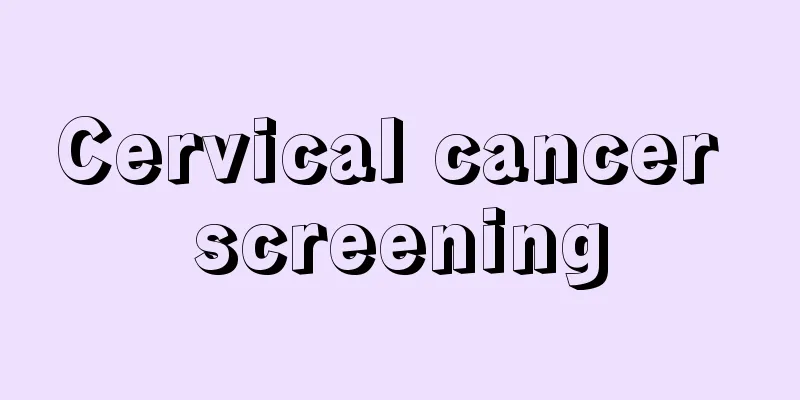Preoperative care methods for teratoma

|
Preoperative care methods for teratoma. There are mature teratoma and immature teratoma in ovarian teratoma. More than 95% of them are cystic mature teratoma, mostly in 20 to 40 years old, and surgery is the only treatment method. Therefore, preoperative care methods for teratoma are very important. Preoperative nursing methods for teratoma 1. Preoperative examination: Before the operation, the nurse should assist the doctor in performing functional tests on the patient's heart, liver, lungs, etc., and perform blood routine, blood type and coagulation time measurements to assess the patient's tolerance to the operation. Preoperative nursing methods for teratoma 2. Psychological nursing: When it is determined that surgery is required, the patient has already started psychological preparation for the surgery, worrying about pain after the surgery, life-threatening surgery, and changes in lifestyle after the surgery, etc. Nursing staff need to apply medical knowledge to patiently answer and explain, and conduct psychological counseling, and introduce the name of the surgery, scope of involvement, surgical method, anesthesia method, etc., as well as the key points and precautions of cooperation during surgery and anesthesia, introduce successful surgical examples and the situation of the surgeon, so that the patient believes that he will receive the best treatment and care, and relieve the patient's mental concerns. Preoperative care methods for teratoma 3. Preoperative health guidance: Let the patient know that there will be no more menstruation after hysterectomy, and there will be amenorrhea, hot flashes, and reduced vaginal secretions after ovarian removal. Those with severe symptoms can receive estrogen replacement therapy under the guidance of a doctor. Secondly, preoperative functional exercises are performed, and patients are trained to breathe and cough to enhance lung function and promote sputum discharge to prevent lung infection. Instruct patients to practice using toilets and get used to defecation in bed. Preoperative care methods for teratoma 4. Preoperative preparation Vaginal preparation: 1 day before surgery, use 1:5000 potassium permanganate solution for vaginal washing; intestinal preparation: 1 day before surgery, eat liquid food, fast after dinner, and do not drink for 46 hours. Enema is given on the night and morning of surgery. 1 day before surgery, prepare the skin, prepare blood, and perform drug allergy tests. Carefully monitor body temperature and blood pressure, observe whether the patient has menstruation, and ask the patient to take a shower. In order to ensure that the patient has enough sleep at night, sedatives can be used. Following the doctor's advice, Shuchen placed a urinary catheter and gave intramuscular injections of basic anesthetics and antibiotics. Preoperative care methods for teratoma 5. Importance of diet and precautions: (1) Eat a semi-liquid diet one day before surgery and do not eat or drink on the morning of surgery to prevent accidental aspiration of anesthesia. (2) Do not eat for 6 hours after surgery, then eat liquid food, avoid sugar and milk. After the gas is discharged, gradually change from semi-liquid food to regular food. (3) Purpose and necessity of preoperative preparation: Skin preparation is to clean the skin and prevent wound infection. The purpose of preoperative medication is to ensure sleep, induce anesthesia, enhance the anesthetic effect, and reduce glandular secretion. Gastrointestinal preparation prevents aspiration of vomitus during and after surgery, prevents accidental injury to the intestine during surgery, facilitates smooth surgery, and prevents abdominal distension after surgery. (4) Placement of a urinary catheter facilitates surgery and prevents accidental injury to the bladder. (5) Preoperative blood preparation and drug allergy testing are done to prepare for intraoperative and postoperative blood transfusions and medication. (6) After surgery, you may feel general discomfort, dizziness, and incision pain, which are normal phenomena. Use painkillers if necessary. You may also experience nausea and vomiting, which are mostly caused by anesthetics and surgical stimulation. (7) Teach patients techniques for turning over after surgery, methods for reducing abdominal tension, techniques for preventing incision pain when coughing, techniques for getting out of bed, and how to use a toilet in bed. (8) After the operation, lie flat without a pillow and tilt your head to one side to prevent headaches, prevent vomitus from being accidentally inhaled and causing suffocation, and prevent shock. (9) Removing the urinary catheter and urinating early can help restore bladder function and prevent urinary retention; it can also avoid difficulty in urinating due to an overfilled bladder. The above is the preoperative care method for teratoma. Please pay attention to adjusting your mentality and diet before the operation so that the operation can be successful. |
<<: Nursing before and after teratoma surgery
>>: Postoperative care for patients with teratoma
Recommend
The efficacy and function of black glutinous rice
Black glutinous rice is a common ingredient in ou...
What are the risk factors for colorectal cancer
In recent years, colorectal cancer has become one...
These three reasons can actually lead to male prostate cancer. How to prevent it
Prostate cancer is the most common tumor in men, ...
What's the matter with black spots on the calves?
Summer is here, and pretty girls like to expose t...
What are the effects of egg, honey and sesame oil
Eggs, honey and sesame oil are all common foods i...
When is the best time to add salt when cooking
When cooking, people add salt at different times....
Will bleeding after sexual intercourse lead to cervical cancer? What are the methods for diagnosing cervical precancerous lesions?
What are cervical precancerous lesions? The occur...
What is the chance of recovery from small cell lung cancer?
What are the chances of recovery from small cell ...
Is low thyroid hormone serious?
If you find that your thyroid hormone is low duri...
Being more aware of the causes of colorectal cancer can also help patients' condition
Nowadays, many people may suffer from colorectal ...
Several common causes of rectal cancer
Rectal cancer is one of the common oncological di...
Feeling depressed during early pregnancy?
Some people say, shouldn’t you be happy when you’...
What soup should I drink right after surgery
Surgery is a common treatment method in today'...
The difference between red bone marrow and yellow bone marrow
Bone marrow is an important substance in the huma...
Can cold uterine cancer be cured?
Can cold uterine cancer be cured? The clinical ma...









